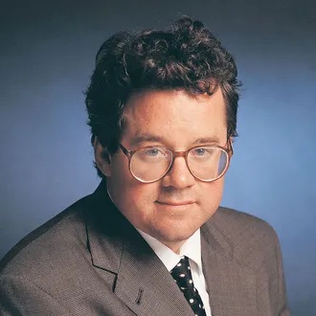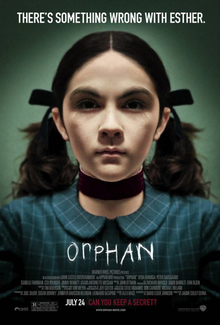
Hayden Christensen is a Canadian actor. He is best known for his portrayal of Anakin Skywalker / Darth Vader in the Star Wars media franchise. He first appeared in the prequel trilogy films, Star Wars: Episode II – Attack of the Clones (2002) and Star Wars: Episode III – Revenge of the Sith (2005), and later reprised his role in the Disney+ series Obi-Wan Kenobi (2022) and Ahsoka (2023).

The New Republic is an American progressive magazine that hosts commentary on politics, contemporary culture, and the arts. Founded in 1914 by several leaders of the progressive movement, it attempted to find a balance between "a liberalism centered in humanitarian and moral passion and one based in an ethos of scientific analysis".
Stephen Randall Glass is an American former journalist. He worked for The New Republic from 1995 to 1998 until it was revealed many of his published articles were fabrications. An internal investigation by The New Republic determined the majority of stories he wrote either contained false information or were fictitious.
Martin H. Peretz is an American former magazine publisher and educator. Formerly an assistant professor at Harvard University, he purchased The New Republic in 1974 and assumed editorial control shortly afterwards. He founded the financial news website TheStreet.com in 1996 with personality and hedge fund manager Jim Cramer. Peretz is known for his strong support of Israel as well as his approval of the US invasion of Iraq in 2003. He retained majority ownership of The New Republic until 2002, when he sold a two-thirds stake in the magazine to two financiers. Peretz sold the remainder of his ownership rights in 2007 to CanWest Global Communications, though he retained his position as editor-in-chief. In March 2009, Peretz repurchased the magazine with a group of investors led by ex-Lazard executive Laurence Grafstein. In late 2010, Peretz gave up his title of editor-in-chief at The New Republic, becoming instead editor emeritus, and terminated his blog The Spine, after other editors and writers at the magazine said they found it offensive and that Peretz would never have had the opportunity to write it if not for the fact that he had been owner of the magazine. He no longer has any association with the magazine.

Margalit Ruth Gyllenhaal is an American actress and filmmaker. Part of the Gyllenhaal family, she is the daughter of filmmakers Stephen Gyllenhaal and Naomi Achs, and the older sister of actor Jake Gyllenhaal.

Wild Things is a 1998 American neo-noir erotic thriller film directed by John McNaughton and starring Matt Dillon, Kevin Bacon, Neve Campbell, Denise Richards, Theresa Russell, Robert Wagner, and Bill Murray. It follows a high school guidance counselor in south Florida who is accused of rape by two female students and a series of subsequent revelations after a police officer begins investigating the alleged crimes.
Adam L. Penenberg is an American journalist and educator, currently associate professor of journalism at New York University and director of undergraduate studies. He had previously served as editor of PandoDaily and written for Forbes, Fast Company, The New York Times, Wired News, and Playboy. While at Forbes, Penenberg gained national attention in 1998 for helping reveal The New Republic reporter Stephen Glass had been fabricating his stories.

John Peter Sarsgaard is an American actor. He studied at the Actors Studio, before rising to prominence playing atypical and sometimes villainous roles in film and television.

Unfaithful is a 2002 erotic thriller film directed and produced by Adrian Lyne and starring Richard Gere, Diane Lane, Olivier Martinez, Erik Per Sullivan, Chad Lowe, and Dominic Chianese. It was adapted by Alvin Sargent and William Broyles Jr. from the 1969 French film The Unfaithful Wife by Claude Chabrol. It tells the story of a couple living in the suburbs of New York City whose marriage goes dangerously awry when the wife indulges in an affair with a stranger she encounters by chance.

Steven James Zahn is an American actor. His film roles include Reality Bites (1994), Stuart Little (1999), Daddy Day Care (2003), Shattered Glass (2003), Sahara (2005), Chicken Little (2005), the Diary of a Wimpy Kid trilogy (2010–2012), Dallas Buyers Club (2013), The Good Dinosaur (2015), and War for the Planet of the Apes (2017). On television, Zahn appeared as Davis McAlary on HBO's Treme (2010–2013), and as Mark Mossbacher in the first season of the HBO satire comedy miniseries The White Lotus (2021), for which he was nominated for the Primetime Emmy Award for Outstanding Supporting Actor in a Limited or Anthology Series or Movie. Zahn won the Independent Spirit Award for Best Supporting Male for his performance in the film Happy, Texas (1999).

Michael Thomas Kelly was an American journalist for The New York Times, a columnist for The Washington Post and The New Yorker, and a magazine editor for The New Republic, National Journal, and The Atlantic. He came to prominence through his reporting on the 1990–1991 Gulf War, and was well known for his political profiles and commentary. He suffered professional embarrassment for his role as senior editor in the Stephen Glass scandal at The New Republic. Kelly was killed in 2003 while covering the invasion of Iraq; he was the first US journalist to die during this war.
CharlesLane is an American journalist and editor who is deputy opinion editor for The Washington Post and a regular guest on the Fox News Channel. He was the editor of The New Republic from 1997 to 1999. During his tenure, Lane oversaw the work of Stephen Glass, a staff reporter who fabricated portions of all or some of the 41 articles he had written for the magazine, in one of the largest fabrication scandals of contemporary American journalism. After leaving the New Republic, Lane went to work for the Post, where, from 2000 to 2007, he covered the Supreme Court of the United States and issues related to the criminal justice system and judicial matters. He has since joined the newspaper's editorial page.

Harry Gerard Bissinger III, also known as Buzz Bissinger and H. G. Bissinger is an American journalist and author, best known for his 1990 non-fiction book Friday Night Lights. He is a longtime contributing editor at Vanity Fair magazine. In 2019, HBO released a documentary on Bissinger titled “Buzz”.
The 7th Online Film Critics Society Awards, honoring films made in 2003, were given on 5 January 2004.
The 7th Toronto Film Critics Association Awards, honoring the best in film for 2003, were held on 17 December 2003.

The Dying Gaul is a 2005 American drama film written and directed by Craig Lucas, his feature directorial debut. The screenplay is based on his 1998 off-Broadway play of the same name, the title of which was derived from an ancient Roman marble copy of a lost Hellenistic sculpture.

Billy Ray is an American screenwriter and film director. He began writing for television and movies in 1994 with Color of Night. He has written numerous films including Captain Phillips (2013) and Richard Jewell (2019).

Orphan is a 2009 psychological horror film directed by Jaume Collet-Serra and written by David Leslie Johnson from a story by Alex Mace. The film stars Vera Farmiga, Peter Sarsgaard, Isabelle Fuhrman, CCH Pounder, Jimmy Bennett and Aryana Engineer. The plot centers on a couple who, after the death of their unborn child, adopt a psychopathic nine-year-old girl with a mysterious past.

The Survivor is a 2021 biographical drama film, directed by Barry Levinson, from a screenplay by Justine Juel Gillmer. Ben Foster stars as Harry Haft, a real-life survivor of the Auschwitz concentration camp, where he boxed fellow inmates to survive. Vicky Krieps, Billy Magnussen, Peter Sarsgaard, John Leguizamo, and Danny DeVito co-star. The film had its world premiere at the Toronto International Film Festival in September 2021, and was released on HBO on April 27, 2022. The film received positive reviews from critics, particularly for Foster's lead performance. The film was Emmy nominated for Outstanding Television Movie.

Dopesick is an American drama miniseries, created by Danny Strong for Hulu. Based on the non-fiction book Dopesick: Dealers, Doctors, and the Drug Company that Addicted America by Beth Macy, it premiered on October 13, 2021, and concluded on November 17, 2021, after eight episodes.














